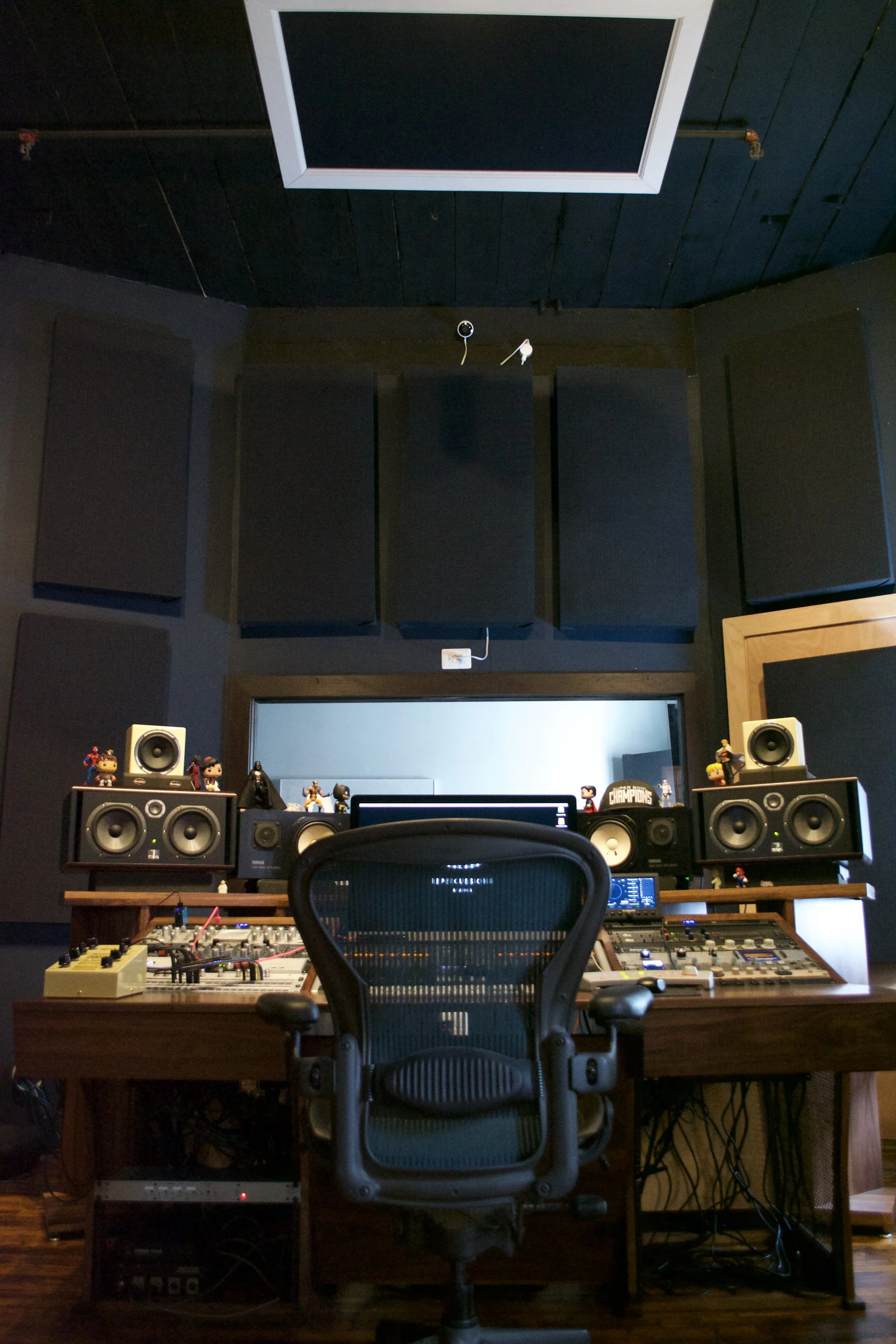- PREPARE YOUR SESSION FILES
have all your beat/instrumental ready for the engineer. having it on a flash drive or hard drive will save you time. Having a WAV file is ideal but MP3 can work. If you don't have a flash drive send the files via wetransfer.com or dropbox.com to: repercussionstudios@gmail.com
- PRACTICE YOUR SONG
going through the song several times prior to your session will help you get the best results in the studio and it will save you time. Put yourself in a position to have a confident performance while you're in the studio. memorizing lyrics and working on your delivery will help you perform your best in front of the microphone.
- HAVE REFERENCES
having different reference songs will help your engineer deliver what you envision in your head. Many of the tricks used in songs today can be easily accomplished by a good engineer. If you find yourself having difficulty describing the sound you want than having a song to reference that sound will help your engineer bring about your vision for the song.
- HAVE PLENTY OF REST
be sure you're rested and ready for your session. Often times physical fatigue can contribute to a lack of energy and emotion in a session which than can lead to a poor performance.
- HAVE AN OPEN MIND
some of the greatest songs have stories of organic creativity brought about on the spot in the studio. Come as prepared as possible but allow for some wiggle room in terms of creativity. Build a relationship with your engineer and consider his/her suggestions for your song. Doing so will may lead to you developing a sound that is all your own.
Viewing entries tagged
studio
Tip: How to record an acoustic guitar. Have your guitarist play the guitar in several positions in your room. Fine the spot that sounds best to your ears. Place 1small diaphragm condenser microphone in the position you desire. 6-10 inches from the 12 fret is usually a good place to start. Remember to a avoid directing the microphone towards the sound hole as this will cause huge bass build up. Moving the microphone closer to the sound hole gives a bassy tone while higher on the fret gives a brighter tone. The closer you place the microphone gives a more dynamic performance while farther away can smoothen things out allowing for more subtle use of compression to let things sit well in the mix. Move according to taste... That's it! Don't over complicate it and don't introduce phase issues by adding a room mic or another microphone at the bridge... You don't need it to be in stereo nor do you need a room microphone to add ambience. If you want more room sound, back the microphone up a few inches. You'll be surprised at the results. And there's an amazing invention called reverb that can really add dimension to the tone. If you want a lush full sounding acoustic guitar, without phase issues, give this a try.
TIP: Opened back and Closed back headphones. Opened back headphones are great for tracking mixing as are closed back headphones. here are some reasons why one would choose one over the other or vice versa. This is purely a preference thing over what is better. Opened back headphones though they may cause some bleed are great for tracking because it gives the singer a more natural sensation of their surroundings and allows them to hear their "natural" sound better. Often times you'll see a singer with closed back headphones take one ear off to accomplish this same purpose. Closed back headphones prevent bleed into the track; hence in modern music most producers appear to prefer this. Another plus is that opened back headphones also are less fatiguing on a person's ears and typically weigh less. Hence it can allow an engineer or a performer to wear them longer without fatigue and strain. Off the top of my head these are a few of the reasons why one would go with one over the other. Do you know any other reasons why someone would choose one over the other???
Tip: finding your sound. Often I'll ask an artist what their "sound" is. More often than not they say things like "I think my sound is completely different" or "we're trying to break the mold". I always find this to be admirable that my clients are so ambitious in the music they want to achieve. This however for an engineer is the hardest client to work with. Here are some reasons why. 1.Your job as a producer becomes the job of a mind reader.
2. It makes the process of making music more about experimentation than about instincts and craft. Though experimentation is always necessary endless experimentation leads no where and 5 yrs later you'll be sitting on songs that have never seen the light of day.
3. What if what they hear just plain doesn't sound good. Or they have difficulty explaining what they want. I listen to all sorts of music from hip hop, trap, country, alternative,classical etc. but a George strait drum sound might not be the best accompaniment to a trap record.
My philosophy has always been that originality stems from a collection of inspiration a person has. The old adage that says "nothing is original. Steal from anywhere that resonates with inspiration" is a saying I deeply agree with. So as an artist or a producer engineer. Getting these inspirations inline are key to accomplishing something that sounds original. I often mix referencing material that sounds similar to the source material that I'm working on. This helps me to stay on the right track.
Is this stealing? Yes... But luckily there is not copy right to a drum sound. And likewise you won't be seeing a law suit for using a 2,5,1 progression that is on countless other records. Don't be afraid to say that things inspire you. Once you accomplish that you'll be 1 step closer to finding "your sound".


